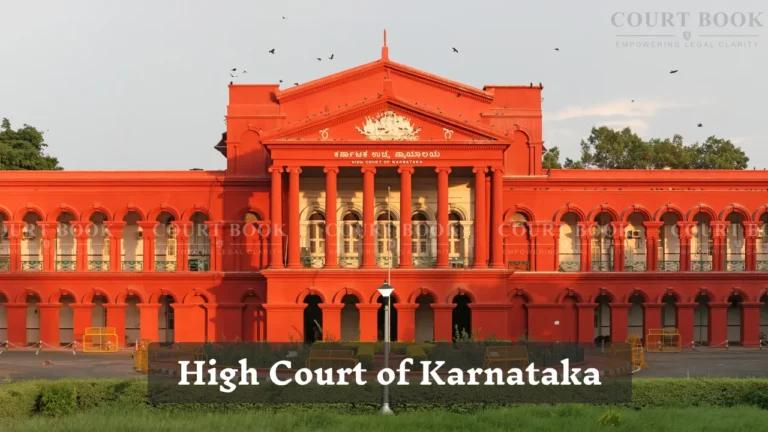The Karnataka High Court has ruled that Gram Panchayats do not have the authority to levy or collect property tax on industrial establishments situated within industrial areas officially notified by the Karnataka Industrial Areas Development Board (KIADB). The decision came while allowing a batch of writ petitions challenging demand notices issued by Sompura Gram Panchayat.
The Court, presided over by Justice Sachin Shankar Magadum, emphasized that in the absence of a statutory notification withdrawing the concerned industrial area from the purview of KIADB under Section 37 of the Karnataka Industrial Areas Development Act, 1966, the Gram Panchayat has no jurisdiction to impose such taxes.
Read Also:- Karnataka High Court Questions BMRCL on Withholding Fare Fixation Report in Plea by BJP MP Tejasvi Surya
“The impugned demand notices do not pass the test of legality and are clearly unsustainable in law,” the Court noted. “The levy amounts to arbitrary exercise of power and is liable to be set aside.”
Background
The petitioners, various industrial entities situated in the Sompura Industrial Area, contended that the Gram Panchayat’s demand for property tax was unlawful as the area is governed by the KIADB. They referred to Section 37 of the KIAD Act, which states that municipal or panchayat laws can apply only after a formal government notification withdrawing such area from KIADB's jurisdiction.
Supporting their claim, the petitioners submitted a letter from the Chief Executive Officer of KIADB to the State Government affirming that property tax and licensing rights lie solely with KIADB.
However, the Gram Panchayat defended the notices, stating it provides essential civic infrastructure and is authorized under Schedule-IV of the Panchayat Raj Act to levy such taxes.
Court's Findings
The Court clarified that the KIAD Act provides a complete framework for the administration of notified industrial areas, including financial and planning authority. Specifically, Section 23 permits KIADB to contribute to local authorities' expenses but does not permit them to levy taxes unilaterally. Section 47 further reinforces that provisions of the KIAD Act override conflicting general laws.
“The power to impose tax on properties within KIADB or other notified industrial areas is subject to Government notification. The phrase ‘subject to notification’ is a legislative condition precedent,” Justice Magadum observed.
The Court also referred to the government circular dated July 16, 2024, which explicitly informed all local bodies, including Gram Panchayats, that they have no authority to approve development or building plans or levy taxes within KIADB-developed estates. The KSSIDC is designated as the competent authority in such cases.
Read Also:- Karnataka Bike Taxi Ban Opposed by Women: Commuters Highlight Safety, Affordability Before High Court
The Court dismissed the argument that the Gram Panchayat had authority through lease-cum-sale agreements or earlier circulars, stating such administrative communications do not replace the need for a proper statutory notification under Section 37.
“Mere execution of a lease-cum-sale agreement or any administrative communication cannot vest such power in the Gram Panchayat in the absence of express delegation or statutory backing,” the Court held.
The Panchayat argued that the petitioners should have approached the appellate authority under Section 201 of the Panchayat Raj Act. However, the Court rejected this, holding that when the very jurisdiction of the taxing authority is under challenge, the writ petitions are maintainable under Article 226 of the Constitution.
Case Title:- M/s. Kalpatharu Breweries & Distilleries Pvt. Ltd. & Others vs. State of Karnataka & Others















